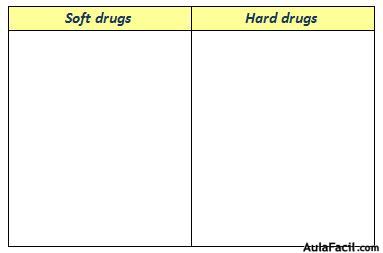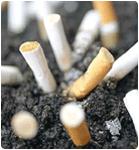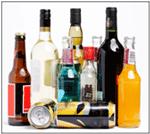Amsterdam’s ‘clean up’
1.- Introduction to Lesson
In this lesson, we are going to talk about drugs. We are also going to focus on two modal verbs: must and have to.
In the world today, there are two types of drugs on the market: soft drugs and hard drugs.
1.1.- Look at the following drugs and decide if they can be categorized as soft or hard drugs. If you don’t know the meaning of the words, please look them up in your dictionary.
Tobacco / Heroine / Ecstasy / Caffeine / Cocaine / Alcohol / Cannabis / Opium
(Para ver la solución hacer doble click en texto; un click vuelve a posición original)




2.- Teacher talk time
Listen to your teacher categorize the above drugs.
- Were you right or wrong?
- Do you agree or disagree with your teacher?
3.- Listening
Before you carry out the listening, please learn the following vocabulary:
3.1.- Key vocabulary
Soft drugs: drogas blandas
Hard drugs: drogas duras
Clean up: limpieza
To unveil: revelar
To prosecute: perseguir
To ban: prohibir
Spliff (slang): porro
Spokesman: portavoz
3.2.- Pre-listening activity
You are going to listen to an extract taken from The Observer newspaper which talks about the famous ‘coffee shops’ in Amsterdam.
a) Before you listen, test your knowledge on the current situation in Amsterdam by filling in the table:
| 1) | Amsterdam is known for its soft approach to prostitution and soft drugs | |
| 2) | You have to be over 16 to buy cannabis | |
| 3) | Coffe shops can sell any amount of cannabis without problem | |
| 4) | There is a new law in force wich has closed all coffe shops | |
| 5) | Smoking tobbacco in public places has been banned in Amsterdam | |
| 6) | A lot of tourists come to Amsterdam to experience its liberality | |
Corregir
Ver Solución
Limpiar | ||


3.3.- Listen and check your answers. Correct the false answers.
Sonido
3.4.- Now listen again and answer the following questions:
| 1) | What are the authorities proposing to do as part of the clean-up? . | |
| 2) | What argument is presented against this? . | |
| 3) | What new law caused difficulties for coffee shop owners earlier this year? Why? . | |
Corregir
Ver Solución
Limpiar | ||
3.5.- Tapescript
Amsterdam’s cannabis café’s furious over mayor’s "clean-up"
Amsterdam has long been famed for its relaxed approach to prostitution and soft drugs.
But all of this may be about to change. As part of a major ‘clean up’ of the city centre, the local authorities yesterday unveiled plans to close half of the little coffee shops where cannabis can be bought and smoked.
Currently people over 18 years old are allowed to buy small amounts of cannabis, although possession is technically against the law. In practice, police have to find you in possession of more than 30 grames to prosecute, and coffee shops can sell small amounts of cannabis without problems.
For several years coffee shop owners haven’t had to worry about the law on cannabis although they faced a new challenge earlier in the year when a ban on smoking tobacco was introduced. The new law means customers can’t put tobacco in their spliffs and have to smoke the drug pure. This has caused problems for those who are not used to strong doses.
But critics of the licensing laws are mainly worried that coffee shops attract organised crime and hide more violent criminal activity. A spokesman for the city said, “We should act now to reduce the number of coffee shops and control the criminals better”.
However, those against the ban, including coffee shop owners and travel agencies say that closing coffee shops will damage the city. A spokesman from STA travel said “Amsterdam must be careful to preserve its unique appeal or tourist might look to other liberal places like Copenhagen for that kind of holiday”.
This text has been adapted from an article by Peter Beaumont, The Observer, Sunday 7th December 2008
4.- Grammar Focus
We are now going to look at the differences between "must" and "have to".
Look at the following two sentences which have been taken from the listening.
Which sentence refers to an outside authority (official regulation) and which one refers to the speaker’s own authority?
| 1) | In practice, police have to find you in possession of more than 30 grames to prosecute | |
| 2) | Amsterdam must be careful to preserve its unique appeal | |
Corregir
Ver Solución
Limpiar | ||
4.1.- Use of "Must" and "Have to"
We use "must" when it is the speaker’s own authority:
- I must not drink a lot at the party (That is because tomorrow I have to work)
- You mustn’t be late if not she’ll get angry (It’s not a good idea to upset Sarah)
- We must be ready before noon (We have to get to the wedding on time)
We use "have to" when we are referring to an outside authority or an official regulation:
- You have to be at school by 08:30 (That is the school rule)
- We have to inform the police if someone is rude to us (That is the rule)
- My doctor told me I have to give up smoking (Obligation from an authority)
4.2.- Practice
Complete the sentences using must, have to, mustn’t or don’t have to.
| 1) | To travel on the bus in Amsterdam, you have a valid ticket. | |
| 2) | The next time you visit the city, you come and stay with us. | |
| 3) | You tell anyone. It´s a secret! | |
| 4) | In Amsterdam, you drive without wearing a seatbelt. | |
| 5) | It´s optional, so you do it. | |
| 6) | Once you have ordered drinks, the bill be paid inmediately. | |
| 7) | You be quiet in the library. | |
| 8) | You take photographs insede the museum. It´s not allowed. | |
Corregir
Ver Solución
Limpiar | ||
5.- Your turn…
Answer the following questions out loud with as much detail as possible.
- What do you think of the new law in Amsterdam?
- Do you think the new law will affect tourism?
- Do you think Amsterdam must be careful to preserve its unique appeal? Explain why.
You may find the following phrases useful:
I think that…
I believe…
In my opinion…
On the one hand... on the other hand…

